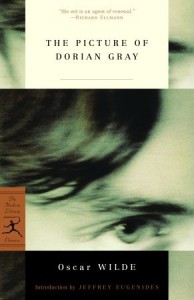The dark side of eternal youth

I'm not really all that sure where I landed up with my copy of this book, but when my bookclub saw the cover today they all thought that it was really, really cool. In fact as I was reading it I kept on looking at the cover and thinking – wow, this cover is just so cool – it looks like a painting by Pablo Picasso:

Anyway, as I mentioned I really can't remember where I got my copy of this book – it sort of just landed up on my bookshelf one day. Maybe I was going through some books that one of my friends was getting rid of and I saw it amongst the rubbish that he had collected over the years and decided to keep it. Anyway, I remember picking it up, reading a few pages, and deciding that I really could not get into it, so put it back on my bookshelf where it remained, unread, until my bookclub decided to pick it as this month's book. So I reluctantly removed it from the shelf and began to read it again, this time with the intention of finishing it.
I must say that it was much better than I expected. I had seriously under-estimated Wilde's gift as an author. I remember seeing a performance of The Importance of Being Ernest last year and being really surprised at how good it was, so I guess sooner or later I was going to give Dorian Gray another shot. Obviously I have now succeeded in that task.
I always thought that Dorian Gray was about some guy who landed up with a painting of himself and instead of him growing old the painting would grow old, and that was basically it. However it is a lot more than that – it is about the seduction of art and how if we look beyond its superficial exterior it can draw us into a world of madness. It is also about how our looks go far beyond age. Many of us seem to think that out looks deteriorate simply through age – our hair goes gray and begins to fall out, our skin winkles, and our gut expands. However Wilde suggests that it is much, much more than that. It is not necessarily time that makes us grow old, but how we spend that time.
Consider this before and after photo:

Okay, I know, it could quite well be propaganda, but the suggestion here is that living a drug fuelled lifestyle can destroy you physically, and that is exactly what Wilde is suggesting in his book. Gray indulges in all forms of hedonism, yet he does not physically age – his painting does. In a way he feels as if he can literally get away with murder – which is what happens throughout the book. The corruption and guilt of his actions does not transform him physically – it transforms the painting. In a way he is able to live a debaucherous life without suffering any of the consequences of his actions.
Yet does he escape the consequences of his actions? I think not. He becomes ever more paranoid and ever more reclusive to the point that his friends all decide that they want nothing to do with him. He become overtly obsessed with the painting, to the point that he does everything in his power to protect it. It is his phylactery – it holds the essence of his soul and as long as the painting remains intact he is in effect immortal, yet this immortality comes with a price – his sanity. While the physical effects of his actions may be absorbed by the painting, the mental effects are not.
Another idea that comes from this book is the idea of art and the dark side therein. Basil, the painter of the portrait, wanted to create something great, something different, something in which his soul has been infused, and in doing so he creates this painting. However his creation takes on a life of its own – it ceases to be Basil's painting and in turn becomes the portrait, and this portrait in turn ends up destroying Dorian.
At the time the book was written we are seeing great changes within the artistic community. For centuries the general idea was to paint things as realistic as possible, however this was beginning to change due to one invention – the camera. Now one could create life-like pictures in an instant without the need to painstakingly work the canvas. As such artists began to move away from the traditional styles to attempt to capture different forms in their paintings. We see this especially with the impressionists, who sought to emphasise colour above all else, and many of their paintings were very dreamlike in form. This is what Basil is trying to do – using his art to capture a different form, to focus on different aspects, and in doing so the painting escapes him and becomes a thing of its own. Sure, it blesses Dorian with eternal youth, but with every blessing there is a cost.
 3
3


